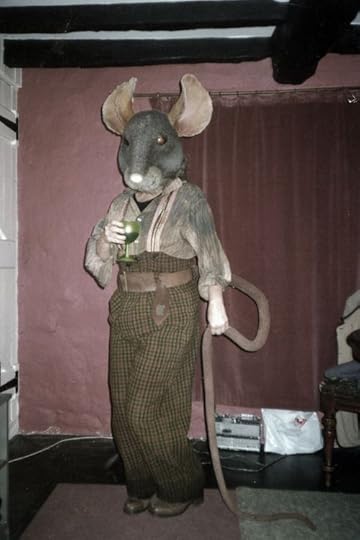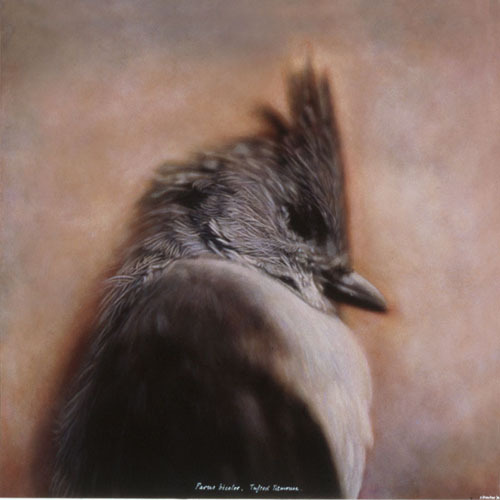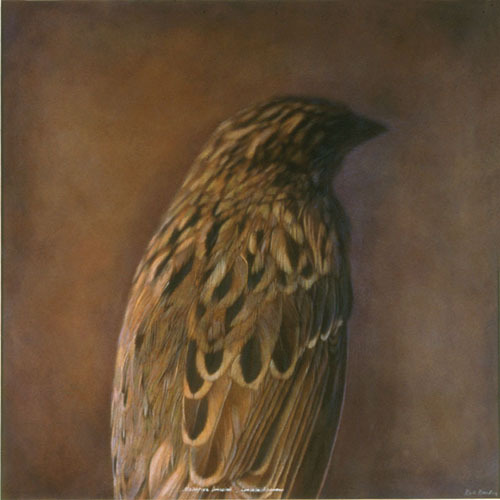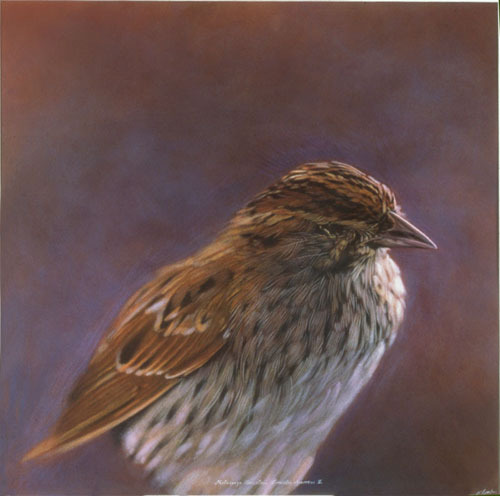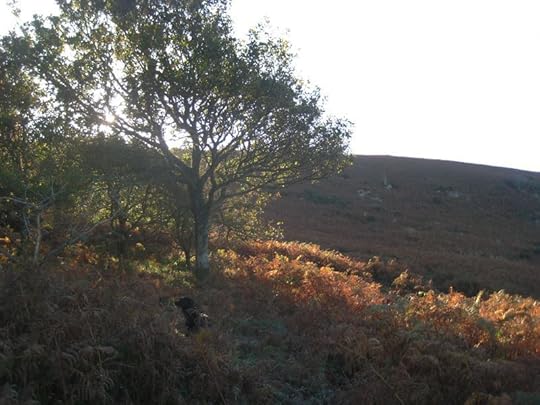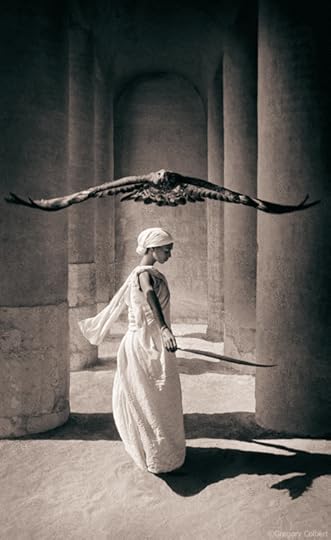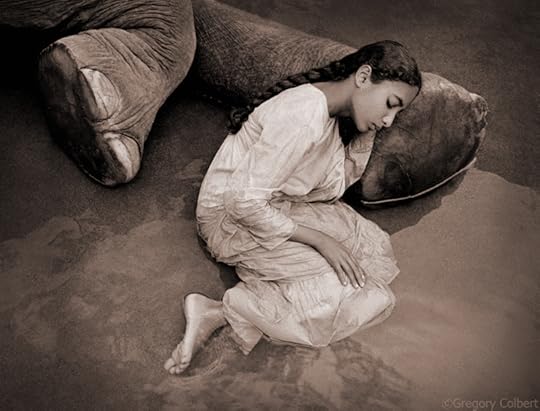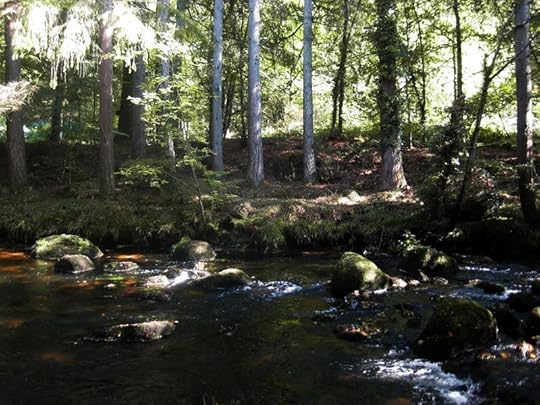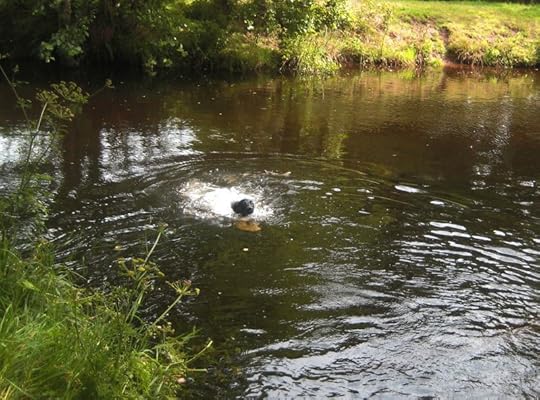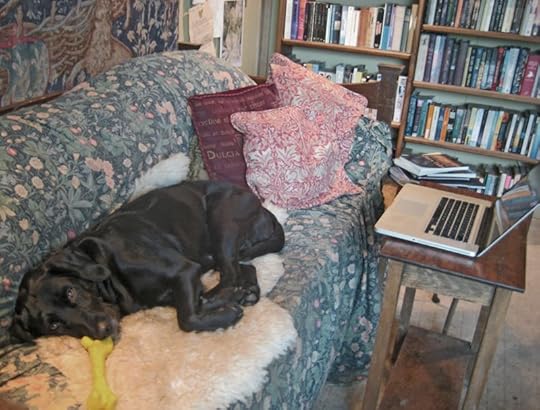Terri Windling's Blog, page 207
October 30, 2012
The Mouse in the House
Although Trick-or-Treating for Halloween is really an American tradition, many English children have adopted it now, including the children here in Chagford. My former cottage, where I lived for 18 years, was located down a pedestrian lane at the center of the village, so many Trick-or-Treaters found their way to my door. But I was never home on Halloween. Instead, a bashful mouse would greet them, with a shy little flick of her long pink tail, standing in the candle-lit doorway of that fairy-tale cottage with its roof of thatch.
Below is as picture of the mouse (photographed at a friend's house, as I have no pictures from my own). She appears here in her everyday clothes, but she always dressed up special for Halloween in a long brown velvet dress. She was known to the children as Miss Mouse, and lived in the cottage walls all the rest of the year.
These day, I live on the outskirts of the village, and only a few intrepid youngers climb the overgrown path to our door on Halloween. Now it's only Tilly, Howard, and I who greet them, for Miss Mouse has long since disappeared; she was last seen, clutching a little mouse-sized suitcase, on the day that I moved from Weaver's Cottage.
A generation of Chagford children grew up with Miss Mouse. (Some even brought her presents of cheese.) I know that they'll carry that memory...and I know that she's still missed. Wherever you are Miss Mouse, stay warm and cozy, and have a good Halloween.
Images above: "Lady Mouse" by Beatrix Potter (1866-1943) and Miss Mouse in her everyday clothes.
October 29, 2012
Prayers to the Birds
“I pray to the birds because they remind me of what I love rather than
what I fear. And at the end of my prayers, they teach me how to
listen.” - Terry Tempest Williams
"By the time I arrive at evening, / they have just settled down to
rest; / already invisible, they are turning / into the dreamwork of the
trees...." - Lisel Mueller
Art above: three hand-painted photographs from the "Small Deaths" series by Kate Breakey (via Tatiana Yatskievych). The series is beautiful though dark...as befits this week, on the cusp of Samhain and the Days of the Dead.
Sending prayers out today to U.S. East Coast friends, c...
Sending prayers out today to U.S. East Coast friends, colleagues, and family members affected by Hurricane Sandy. Be safe, everyone.
Art above: "Miranda" by John William Waterhouse (1849-1917)
October 28, 2012
Tunes for a Monday Morning
Three spooky, atmospheric videos for Halloween week...
First: "My Manic and I," by the brilliant young singer/songwriter Laura Marling, who hails from Hampshire, UK.
Second: Cold Bread," by Marling's occasional collaborator: the fabulous Johnny Flynn, who is based in London.
The third video:
"Me Over You" by Lucia, a 17 year old singer/songwriter from Bucharest, Romania.
October 27, 2012
Autumn on the hill
“Just as music is noise that makes sense, a painting is colour that makes sense, so a story is life that makes sense.” - Yann Martel
“Art evokes the mystery without which the world would not exist.” - René Magritte

October 25, 2012
The dream of feathers...
From "The Dream of Feathers" by Linda Hogan (of the Chickasaw Nation), published in her luminous book Dwellings: A Spiritual History of the Living World:
"Perhaps there are events and things that work as a doorway into a mythical world, the world of first people, all the way back to the creation of the universe and the small quickenings of earth, the first stirrings of human beings at the beginnings of time. Our elders believe this to be so, that it is possible to wind a way backwards to the start of things, and in doing so find a form of sacred reason, different from ordinary reason, that is linked to forces of nature. In this kind of mind, like in the feather, is the power of sky and thunder and sun, and many have had alliances and partnerships with it, a way of thought older than measured time, less primitive than the rational present. Others have tried for centuries to understand the world by science and intellect but have not yet done so, not yet understood animals, finite earth, or even their own minds and behavior. The more they seek to learn the world, the closer they come to the spiritual, the magical origins of creation.
"There is a still place, a gap between the worlds, spoken by the tribal knowings of thousands of years. In it are silent flyings that stand aside from human struggles and the designs of our own makings. At times, when we are silent enough, still enough, we take a step into such mystery, the place of spirit, and mystery, we must remember, by its very nature does not wish to be known."
The photograph above is from the Ashes and Snow series by Gregory Colbert.
October 24, 2012
T.H. White: a rescued mind
In her last book, Eating Stone (a meditation on life, wilderness, and bighorn sheep), the late naturalist writer Ellen Meloy penned this vivid portrait of T.H. White, author of The Once and Future King -- a brilliant man who suffered from what might, today, be diagnosed as clinical or bipolar despression:
"For British writer T.H. White, as I read while out watching bighorns, a mind activated by beasts was a rescued mind. White averted mental disasters by keeping a proximity to animals and sustaining a voracious appetite for knowledge.
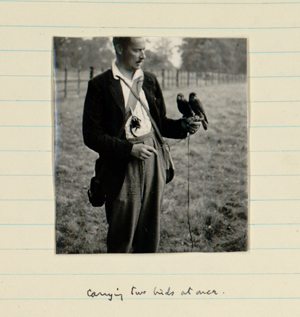 "Described by biographer Sylvia Townsend Warner as 'chased by a mad black wind,' this 'hermetic and sometimes cranky man' wrote more than twenty-five books. He was an illustrator and calligrapher. He translated medieval bestiaries. He painted, fished, raced airplanes, built furniture, sailed boats, plowed fields, and flew hawks at prey. Late in life, he made deep-sea dives in a heavy old suit with a bulbous helmet, which made him look like a Zuni mudhead.
"Described by biographer Sylvia Townsend Warner as 'chased by a mad black wind,' this 'hermetic and sometimes cranky man' wrote more than twenty-five books. He was an illustrator and calligrapher. He translated medieval bestiaries. He painted, fished, raced airplanes, built furniture, sailed boats, plowed fields, and flew hawks at prey. Late in life, he made deep-sea dives in a heavy old suit with a bulbous helmet, which made him look like a Zuni mudhead.
"New skills 'aerated his intelligence,' Warner tells us. For his 1955 translation of a 12th-century bestiary, he taught himself Latin. Through a character in one of his novels he hinted at himself. 'The best thing for being sad,' the character says, 'is to learn something.'
"Much of White's knowledge of the natural world resurfaced in his teaching -- he was for many years a schoolmaster -- although greater experts in his subjects accused him of smattering. 'But 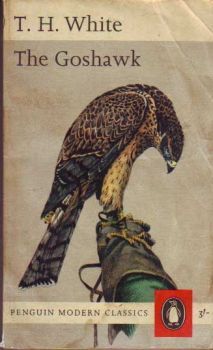 smatterer or no,' writes Warner, White 'held his pupils' attention; their imagination, too, calling out an unusual degree of solicitude -- as though in the tall, gowned figure these adolescents recognized a hidden adolescent, someone unhappy, fitful, self-dramatizing, and not knowing much about finches.'
smatterer or no,' writes Warner, White 'held his pupils' attention; their imagination, too, calling out an unusual degree of solicitude -- as though in the tall, gowned figure these adolescents recognized a hidden adolescent, someone unhappy, fitful, self-dramatizing, and not knowing much about finches.'
"He wore scarlet. He was 'nobly shabby.' He drank, he said, 'in order not to be sober.' He kept owls and paid his students to trap mice to feed them. Fed, the owls perched on his shoulder as he sat under an apple tree, speaking to him in little squeals.
"He wrote a story about geese and geese hunters, one of them a 'mad generasl' who said one ought not to hunt geese and waved the birds away before anyone could. White's ardent love for natural beauty, his friends remarked, peaked in wild enthusiasm, then crashed into melancholy at beauty's transience. The melancholy may have been clinical. In gloom, he sought the air. In the late 1930s, he wrote:
" 'I had two books on the training of the falconidae in one of which was a sentence which suddenly struck fire from my mind. The sentence was: "She reverted to a feral state." A longing came to my mind that I should be able to do this myself. The word "feral" has a kind of magical potency which allied itself with two other words, "ferocious" and "free." To revert to a feral state! I took a farm-labourer's cottage and wrote to Germany for a goshawk.'
"The Goshawk, published in 1950, chronicled White's seduction by a great and beautiful bird."
And it is, indeed, an absolutely fascinating book...and it's still available in reprint editions.
Above: Alan Lee's illustration for the "Sword in the Stone" section of The Once and Future King; a photograph of T.H. White with his birds of prey; cover art for the Penguin Classics edition of The Goshawk, and a photograph of a goshawk (photographer unknown).
October 23, 2012
Crossings
From Eating Stone: Imagination and the Loss of the Wild by Ellen Meloy (1946-2004):
"Homo sapiens have left themselves few places and scant ways to witness other species in their own worlds, an estrangement that leaves us hungry and lonely. In this famished state, it is no wonder that when we do finally encounter wild animals, we are quite surprised by the sheer truth of them."
"Each time I look into the eye of an animal...I find myself staring into a mirror of my own imagination. What I see there is deeply, crazily, unmercifully confused.
"There is in that animal eye something both alien and familiar. There is in me, as in all human beings, a glimpse of the interior, from which everything about our minds has come.
"The crossing holds all the power and purity of first wonder, before habit and reason dilute it. The glimpse is fleeting. Quickly, I am left in darkness again, with no idea whatsoever how to go back."
The photographs above are from the remarkable Ashes and Snow series by wildlife photographer Gregory Colbert.
October 22, 2012
Flowing like the river
"Everything in nature invites us to be constantly what we are. We are often like rivers: careless and forceful, timid and dangerous, lucid and muddied, eddying, gleaming, still. Lovers, farmers, and artists have one thing in common, at least -- a fear of 'dry spells,' dormant periods in which we do no blooming, internal droughts that only the waters of the imagination and psychic release can civilize. All such matters are delicate, of course. But a good irrigator knows this: too little water brings on the weeds while too much degrades the soil....In his journal Thoreau wrote, 'A man's life should be as fresh as a river. It should be the same channel but a new water every instant."
- Gretel Erlich (from The Solace of Open Spaces)
“May what I do flow from me like a river, no forcing and no holding back, the way it is with children.”
- Rainer Maria Rilke

Oh, yes.
On Your Desk
Here's another brief entry to the On Your Desk photo series: my own current writing space. Even though I have a perfectly good desk
(pictured here in an earlier post), these days, I confess, I'm in the habit of working from my studio's couch --
-- which isn't very practical in terms of space (books, papers, and coffee cups piling up precariously around me), but lets Tilly curl beside me as I work. Ah, the things we do for our dogs.
She generally snoozes with her head on my lap (snoring loudly), or her nose resting on a favorite toy...or else she sits and stares intently out the window, lest her arch nemeses (the neighbor's cats) stroll by, those brazen hussies.
I've always preferred to spread out on a desk (the bigger the better), so this is a considerable change for me. But the new set-up has one distinctive advantage (besides unabashed canine indulgence): a gorgeous view, looking out to the slope of Meldon Hill, and the distant moor beyond, pictured here on a misty, rainy day:
If your workspace has changed since you last contributed photos to the "On Your Desk" series, you're very welcome to contribute again. Info on how to do so is here, at the bottom of the first post in the series.
Terri Windling's Blog
- Terri Windling's profile
- 707 followers



